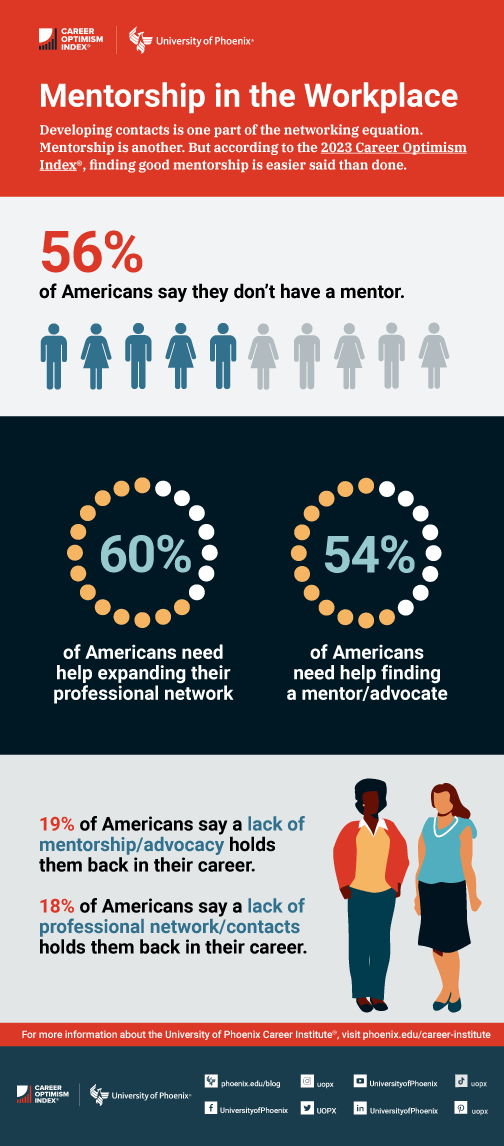How to leverage the hidden job market

Written by Kara Dennison, SPHR

Reviewed by Jessica Roper, MBA, director of Career Services at University of Phoenix

Looking for a new role isn’t for the faint of heart. While it may feel productive to keep submitting applications, receiving rejection letters and being ghosted by recruiters can quickly undercut any sense of achievement that comes with emailing out your resumé.
For the record, this is true for everybody. I speak with high-achieving professionals and leaders every day who excel in their roles yet have their confidence shaken by the traditional job search process.
In a competitive job market, simply relying on “the job board lottery” may not be enough to land your next role, especially if your competition is active in the hidden job market.
The traditional job search is broken
I recently spoke with a data analyst whose two-month job search resulted in 1,600 applications with only 15 responses and six interviews with actual decision-makers. Despite her effort, her return on investment was less than 1%, leaving her feeling burned out and discouraged.
She’s not alone. After working with thousands of job seekers, I have found that relying solely on job boards as a job-search strategy is not your best option. Not only is it time-consuming, but it also produces the lowest results when it comes to interviews — all while infusing your job-search mindset with fear, uncertainty and desperation.
Additionally, when you only rely on job boards, you’re fishing in a limited pond rather than the whole ocean of opportunity available to you. Many employers bypass job boards altogether to find top talented candidates through what’s known as the hidden job market.
What is the hidden job market and why does it exist?
The hidden job market comprises job opportunities that aren’t publicly advertised but are instead filled through personal networks, referrals or direct outreach.
Companies use the hidden job market for a variety of reasons, such as filling confidential or unposted roles or creating a position for a specific candidate identified through networking.
Additional reasons companies use the hidden job market include:
- Cost savings. By relying on referrals and networking, employers can save time and money on job ads and recruitment fees.
- Time savings. Referrals are usually up to speed on a company’s brand, culture and values, which streamlines onboarding and enables the referral to become more productive faster.
- Increased engagement and loyalty. Employees like working at places where they have a friend! Maybe that’s why referrals tend to be more engaged and stay on longer with an organization. This is a win for companies since it allows them to avoid costly recruiting.
- Confidentiality. A high-profile employee or leader who’s underperforming might be the next to go. Hiring their replacement is critical, yet alerting the employee to changes is undesirable.
Leveraging employee referrals to access the hidden job market
When I was a recruiter, our company had a policy that all employee referrals were guaranteed a phone screen. Many companies have similar policies, which makes referrals a triple win. Your chances of landing an interview improve, your friend or networking contact may secure a bonus for referring you, and the company saves time filtering thousands of applications.
When it comes to securing that referral, it’s important to position yourself as an industry expert or leader and build a robust professional network. Leveraging both will become more valuable than any blind application you submit.
Professionally position your LinkedIn profile
Recruiters and decision-makers spend their time on LinkedIn looking for industry leaders and experts to join their teams. Setting your profile up for success will be critical in helping them find you.
If you haven’t taken a look at your LinkedIn profile in a while, now is a good time to critically audit your profile. Revisit it through the lens of your ideal audience: your future boss. Here are some questions to ask yourself:
- Is the direction of my career clear within five seconds? Your banner profile image, headline and “about” section should all focus on positioning yourself as an expert or leader in your industry. Avoid presenting yourself as a generalist, as this can be confusing and cause potential employers to move on to someone with a more focused brand.
- Does your profile speak to your accomplishments, achievements and results? Your future boss wants to see the impact you’ve had at your previous positions so they can visualize you getting results for their team.
- Are my skills relevant to the job I want? Far too often I see outdated skills on LinkedIn profiles that are vestiges from earlier roles. (Sometimes they’re even from unrelated industries that predate a career pivot!) Do a quick audit to ensure this keyword rich section is updated with your relevant skills.
- Are my settings properly set? Recruiters and decision-makers are looking for you! If they can’t see your profile picture because of your settings, they might assume you’re not active on LinkedIn and move on.
Tap the power of networking
Networking gets a bad rap these days, but it’s essentially just two people having a conversation and exchanging information. I bet you’re networking every single day! When it comes to your job search, having a conversation with current employees at a dream organization can not only help secure a referral but can also give you a peek inside the company’s culture, challenges and opportunities.
Here are some ways to network strategically for your job search:
- Look for opportunities to meet new people. To find networking opportunities, follow industry-related groups on LinkedIn and Facebook and keep an eye out for virtual events, webinars and conferences. Don’t limit yourself to traditional networking events. Attending social gatherings, workshops and classes related to your hobbies can also be valuable when it comes to making new connections.
- Take a look at your current network. Your network is larger than you think! Consider former colleagues, neighbors, fellow volunteers and parents at your child’s school. Take a closer look at your LinkedIn and other social media connections. People who already know you are more likely to help you get your foot in the door at their companies.
- Reach out directly to your dream companies. To maximize your chances of success at a specific company, connect with three key people: your future boss, a recruiter or HR representative, and someone in a similar role or on a team you’d like to join. By reaching out to them professionally, you can gain valuable insights into the company culture and hidden job opportunities. You may even create a new position by presenting yourself as the solution to their challenges.
Work with headhunters and recruiters
Add headhunters and recruiters to your job search, as companies often partner with them for confidential positions.
While headhunters are technically there to advocate for you, they work with many candidates and will typically advocate hardest for the candidate who is most likely to be hired, since that will result in their commission. Partnering with recruiters is an additional strategy, but it should not be your only one.
Be proactive, talk with your existing connections, add new connections to your network and ask for that referral. These strategies will make your job search more productive than relying on the “job board lottery” and will form a pathway to the hidden job market. Most importantly, these steps will help you to land at a company that aligns with your goals.
LinkedIn is a registered trademark of LinkedIn Corporation and its affiliates in the United States and/or other countries.
ABOUT THE AUTHOR
Kara Dennison is a certified Senior Professional in Human Resources (SPHR), Executive Career & Leadership Coach and Forbes contributor. She’s the CEO of Optimized Career Solutions and has helped over 2,000 high-achieving professionals and leaders land their dream jobs, helping to negotiate over $12M in salary increases. Her dream job is helping high achievers and leaders live authentic lives, starting with their careers. When she’s not writing for University of Phoenix or coaching high achievers and leaders, you can find her hanging out with her husband and two black cats or swinging in the hammock out back in her small, remote town in Tennessee.

ABOUT THE REVIEWER
Jessica Roper, University of Phoenix director of Career Services, is a seasoned leader with over 15 years of experience in leadership within higher education. She has honed her expertise in student services and career development and is passionate about helping others discover and refine their skills.
This article has been vetted by University of Phoenix's editorial advisory committee.
Read more about our editorial process.
Read more articles like this:




